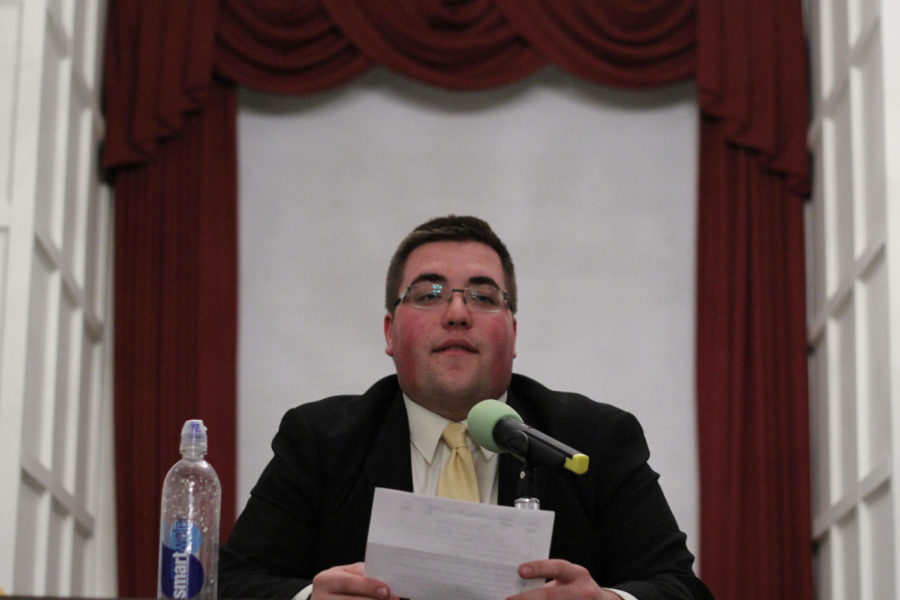Candidate sues GSB election commissioner
Miranda Cantrell/Iowa State Daily
Adam Guenther is the GSB election commissioner.
February 26, 2014
A presidential candidate is suing the GSB election commissioner in the Government of the Student Body court.
Adam Guenther, GSB election commissioner, is being sued by Barry Snell, a GSB presidential candidate, after being told he would not be able to debate without 500 signatures.
“Neither the GSB constitution, bylaws nor election code say anything about candidates needing petitions to debate,” Snell said in a letter to the GSB Supreme Court.
Snell said the court will ask and decide on a few simple questions after the hearing.
“Are the petitions required for a candidate or slate to be placed on the ballot, or for them to participate in the debates?” Snell said.
Snell stated that the documents very clearly require petitions only for a candidate’s appearance.
“Unfortunately, I do not comment on ongoing affairs with the court. The hearing is this week, and I may comment afterwards once a decision is made,” Guenther said via an email response.
Snell said GSB has three documents that govern its elections: the GSB constitution, bylaws and election code. He said that the constitution is relatively silent on the election policy and simply provides basic guidelines.
“It is my position, as derived from the black letter of the GSB bylaws and election code, that the petitions are only required for a candidate or slate to be placed on the ballot and nothing more,” Snell said.
The GSB bylaws, in section 13.1, include an election code that must contain the provisions of government law that directly regulate candidate and student behavior in regard to government elections.
“I look forward to hearing what the Supreme Court says,” said Spencer Hughes, GSB President. “I hope that this will be resolved within the next couple of days.”
The election code must set up debate procedures and guidelines.
“Election Commissioner Guenther told me quite clearly that candidates absolutely must submit the petitions or else Mr. Guenther would not allow those candidates to debate,” Snell said.
Snell said all he was asking was for a simple ruling on a simple matter, but it’s gotten blown a bit out of proportion by everyone else.
“I really look at this case as a positive thing no matter what the outcome,” Snell said. “A lot of people at GSB are afraid of risking a little controversy, but you never know what the system’s weaknesses are if they are not tested and fixed.”
In section 13.3.2 of the bylaws, says that students wishing to be placed on the ballot as candidates for president and vice president shall have their petition signed by no fewer than 500 registered ISU students.
“The last GSB Supreme Court case was in the spring of 2010 and was also election-related,” Hughes said. “This kind of case has not happened before, to my knowledge.”
The GSB Supreme Court hearing will be held at 5:30 p.m. today, in room 2134 of the Gerdin Business Building. The hearing is open to the public.







